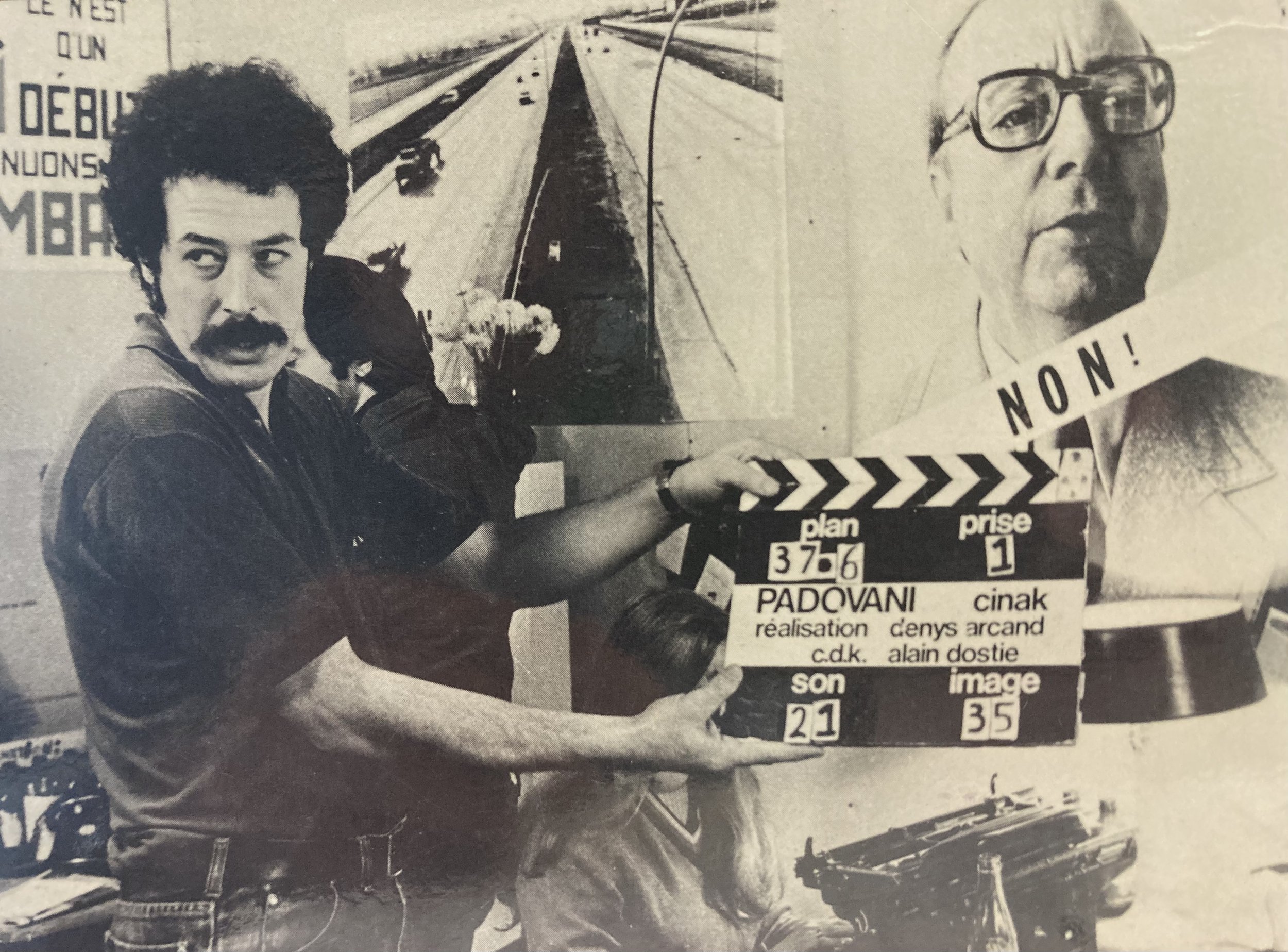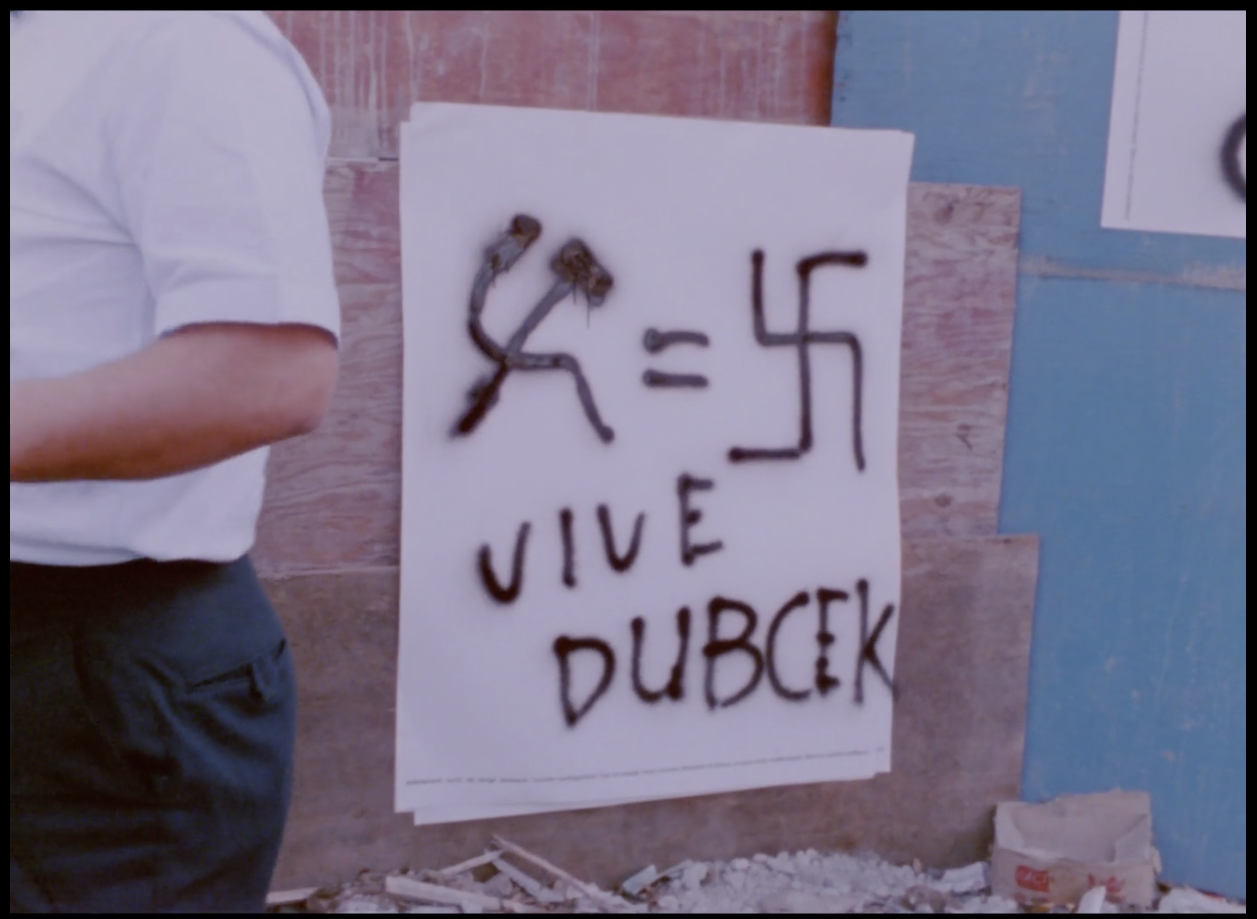Behind the scenes, Réjeanne Padovani, sometime between October 26 and November 28, 1972. Denys Arcand in full effect.
Part of the inspiration came from a recently completed documentary about Quebec politics and the lingering shadow of Maurice Duplessis. Arcand put it this way: “When I made Québec: Duplessis and After… [1972]… I witnessed a close connection between politics and organised crime. I would have liked to have shown this connection in the documentary but… it is impossible to convince politicians and their acolytes to disclose anything in front of the camera…. That is the reason I made Réjeanne Padovani: in order to talk about that world. Of course, I transposed the situation, I gave it a dramatic form—even respecting the three neo-classical unities—but the whole thing comes from my experience as a political documentarist.”
You can watch Québec: Duplessis et après… in its original French version here.
And you can find Réjeanne Padovani here.
aj
[mustaches; film production; politics; corruption; activism; gangsterism]















![NOTE: In case you can’t make it out: “Jesus Xst est mort. Vive Che Guevara. [Jesus Xst is dead. Long live Che Guevara.]”](https://images.squarespace-cdn.com/content/v1/5407bbece4b0d617570ff0ed/1624413182940-BIVGEK5LNE14P3M22A0B/Bozarts+1969+Giraldeau+vive+che+guevara.png)


